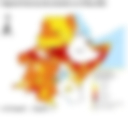Who are we?
The Food Security and Nutrition Working Group (FSNWG) is a regional platform, currently co-chaired by ICPAC and FAO. It’s goal is two-fold: to provide an up-to-date food security and nutrition situation analysis (early warning) and to offer a forum to build consensus on critical issues facing policy and interventions. The FNSWG has served regional governments, donors, and non-governmental agencies since the early 2000’s. Current membership includes approximately 80 organisations (IGAD, UN agencies, NGOs, donors, and research institutions) who contribute to the operation of the working group, and its nutrition, markets, food security information, livestock and pastoralist sub-groups.

Featured Updates

FSNWG Food Security and Nutrition Update - March 2025
In March 2025, an estimated 85 million people in the region were highly food insecure and in urgent…

FSNWG Food Security and Nutrition Update - January 2025
In January 2025, an estimated 82.1 million people in the region were highly food insecure and in ur…

IGAD Regional Focus of the 2024 Global Report on Food Crises
The IGAD Regional Focus of the 2024 Global Report on Food Crises underscores a deepening food insec…

East Africa cross-border trade bulletin for January - March 2024
The Market Analysis Sub-group of the Food Security and Nutrition Working Group (FSNWG) monitors inf…
Browse Updates
Filter by Update Type
Filter by Year
Filter by Month
Showing 68 results

IGAD Regional Focus of the Global Report on Food Crises 2022
The fourth edition of the IGAD Regional Focus of the Global Report on Food Crises highlights the alarming high-levels of acute food insecurity in 2021 in the region, where about 42 million people were estimated …

Global Report on Food Crises 2022
Globally, levels of hunger remain alarmingly high. In 2021,
they surpassed all previous records as reported by the
Global Report on Food Crises (GRFC), with close to 193 million
people acutely food insecure and in …

Food Security Statement, May 2022
Key messages
- Drought conditions continued to worsen in southern and south-eastern Ethiopia, the arid and semi-arid lands (ASALs) of Kenya and across most of Somalia following the reality of a fourth consecutive season of below-average …

FSNWG Drought Special Report April 2022
In February 2022, FSNWG issued a Drought Special Report, examining the current food security situation across the eastern Horn of Africa (i.e. Ethiopia, Kenya, and Somalia) after three consecutive seasons of below-average rains. This …

Food Security and Nutrition Snapshot, April 2022
- 53.1 million people in Crisis or worse levels of acute food insecurity (IPC1 Phase 3+). 23.5 million of them from six of the eight IGAD member states.
- Prolonged drought conditions, particularly in eastern and southern …

Food Security Statement, March 2022
- Consecutive seasons of below-average rains have led to moderate to severe drought conditions in various parts of the region, including southern and south-eastern Ethiopia, northern and eastern Kenya, most of Somalia and localised parts of …
